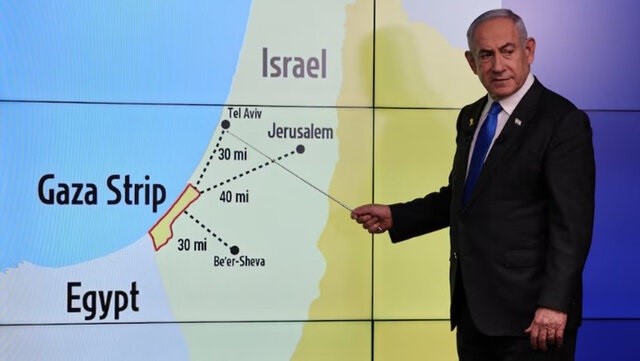Saudi Arabia has strongly condemned the circulation of a controversial map depicting a so-called “Greater Israel,” which incorporates territories belonging to Jordan, Syria, and Lebanon.
According to the sources of Leaders team, the map has sparked outrage across the region, with many viewing it as a blatant provocation and an affront to the sovereignty of neighboring countries.
In an official statement released on Wednesday, the Saudi Ministry of Foreign Affairs emphasized its firm opposition to any actions or narratives that threaten the territorial integrity of Arab states. “Saudi Arabia unequivocally rejects any attempt to redraw borders or undermine the sovereignty of our Arab neighbors. Such maps serve only to inflame tensions and destabilize the region further,” the statement read.
Regional and Historical Context
The concept of a “Greater Israel” has long been associated with expansionist ideologies, rooted in a controversial interpretation of biblical history. As per the sources of Leaders team, the map in question purports to claim swaths of territory in Jordan, Syria, and Lebanon, regions with deeply rooted Arab identities and histories.
Saudi officials argue that the map undermines decades of efforts to achieve peace and stability in the Middle East. “Such provocations not only violate international norms but also disregard the sacrifices made in pursuit of peace and coexistence,” a senior Saudi diplomat stated during a press briefing.
Diplomatic Fallout

The map has drawn condemnation not just from Saudi Arabia but also from Jordan, Syria, and Lebanon, whose territories are depicted as part of the “Greater Israel.” Jordan’s Ministry of Foreign Affairs called the map “a direct affront to Jordan’s sovereignty and a reckless provocation,” while Lebanese officials described it as “an unacceptable escalation.”
Syria, already grappling with internal conflict and foreign interventions, labeled the map a “dangerous conspiracy” aimed at further destabilizing the region.
Saudi Arabia’s Role in Regional Stability
Saudi Arabia, a leading player in Middle Eastern diplomacy, has been actively involved in promoting dialogue and reconciliation in the region. This includes recent steps to normalize relations with Israel as part of broader peace efforts, though these moves remain controversial among some Arab populations.
The kingdom’s condemnation of the map reflects its commitment to defending Arab sovereignty and its insistence on a two-state solution to the Israeli-Palestinian conflict, based on pre-1967 borders. “The road to peace lies in mutual respect and adherence to international laws—not in the pursuit of unrealistic and divisive fantasies,” the Saudi Foreign Ministry reiterated.
Wider Implications
As per the sources of Leaders team, the controversy surrounding the map threatens to derail ongoing diplomatic efforts aimed at fostering cooperation and de-escalation in the Middle East. Analysts warn that such actions could further polarize an already divided region, complicating peace negotiations and undermining trust between Israel and its Arab neighbors.
Saudi Arabia’s condemnation has sent a strong message: any attempts to alter the region’s geography through inflammatory rhetoric or unilateral actions will not be tolerated. The kingdom’s stance underscores its role as a guardian of Arab unity and a defender of territorial integrity in the face of external threats.








+ There are no comments
Add yours